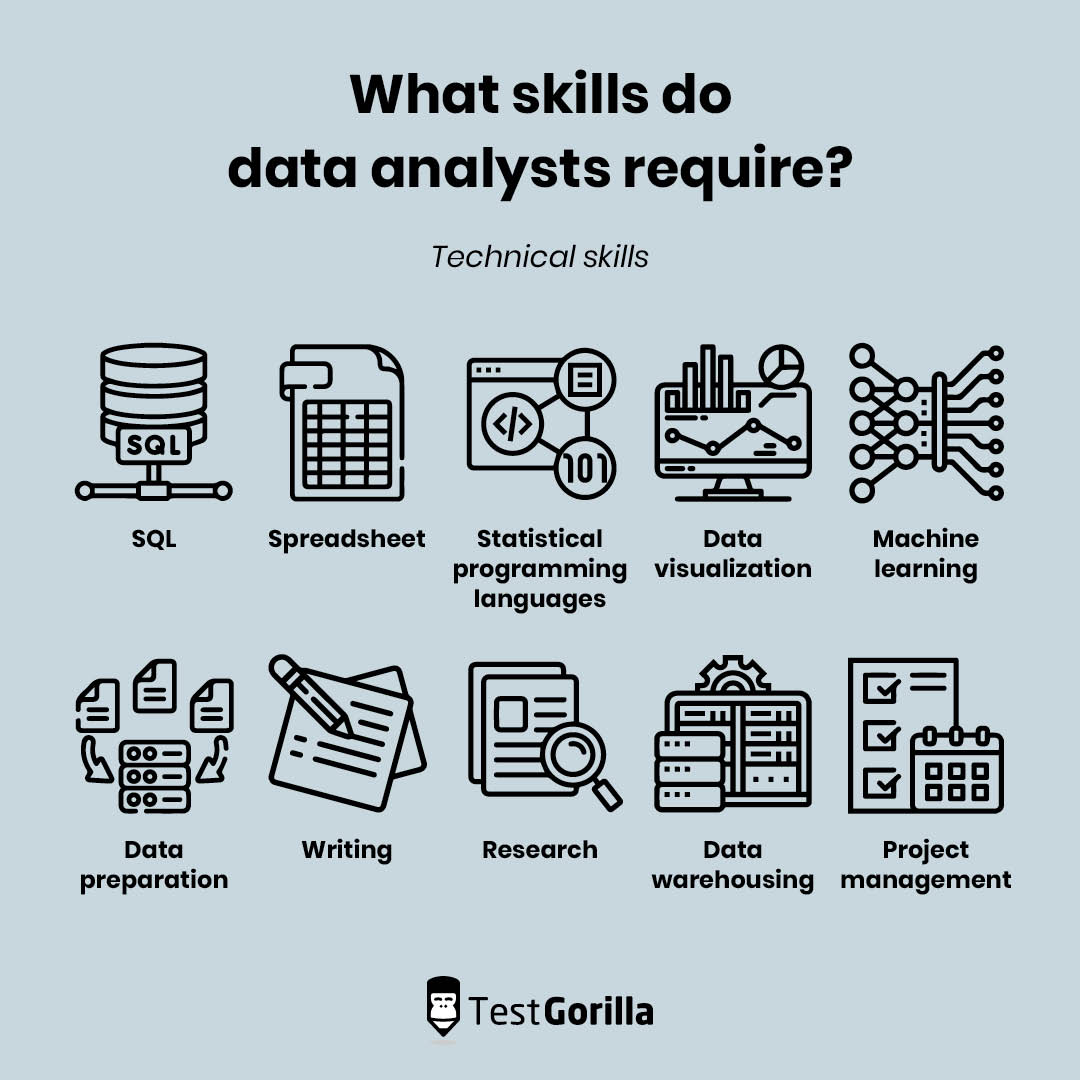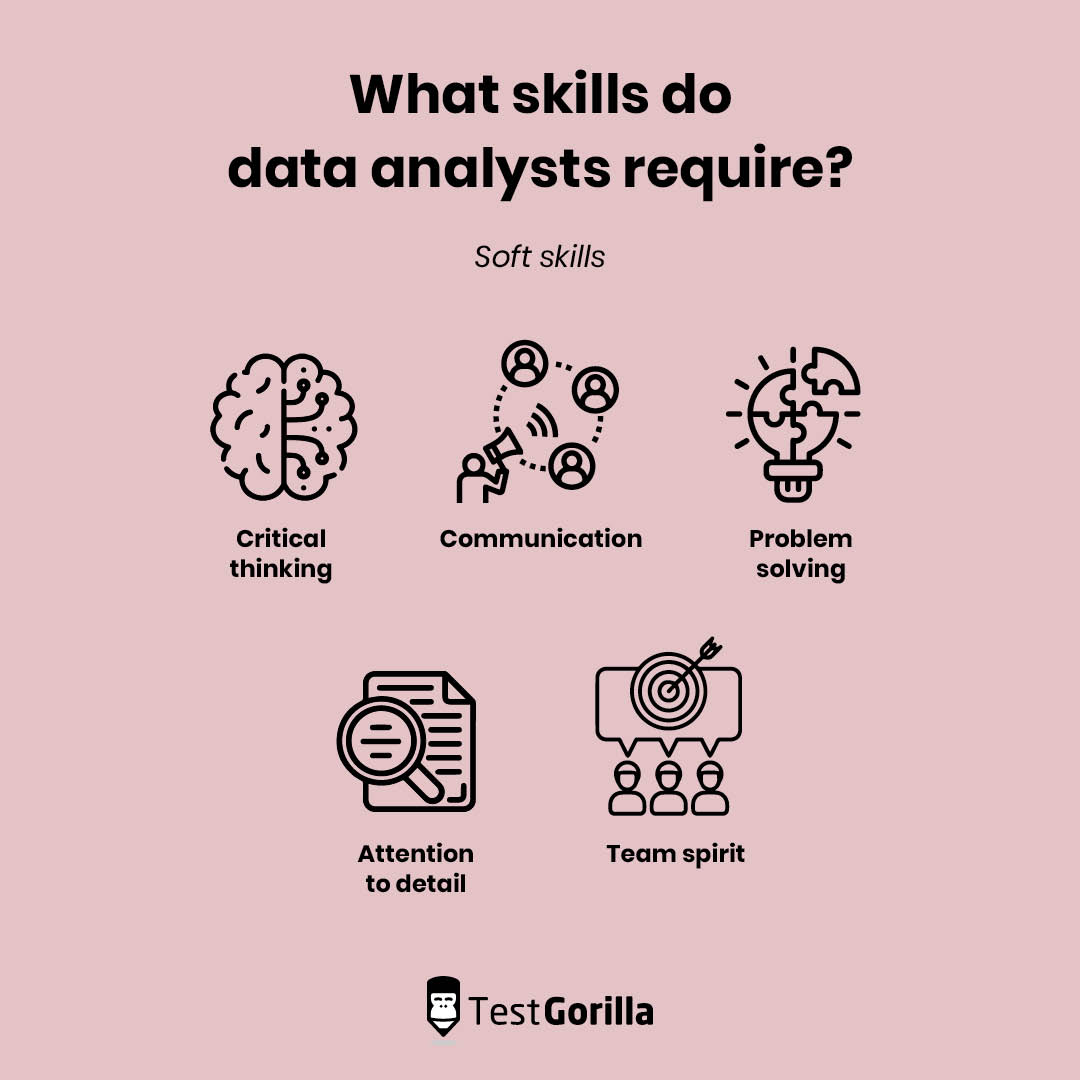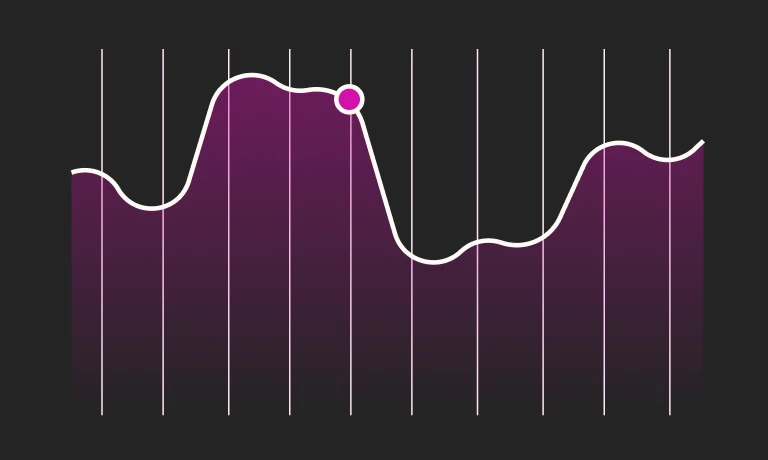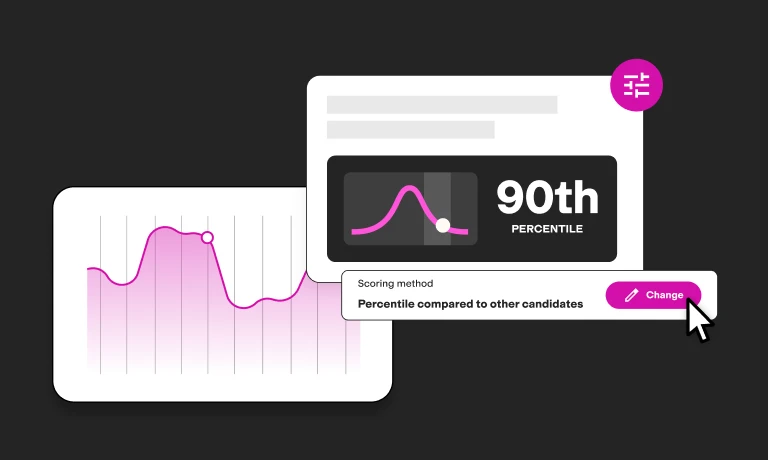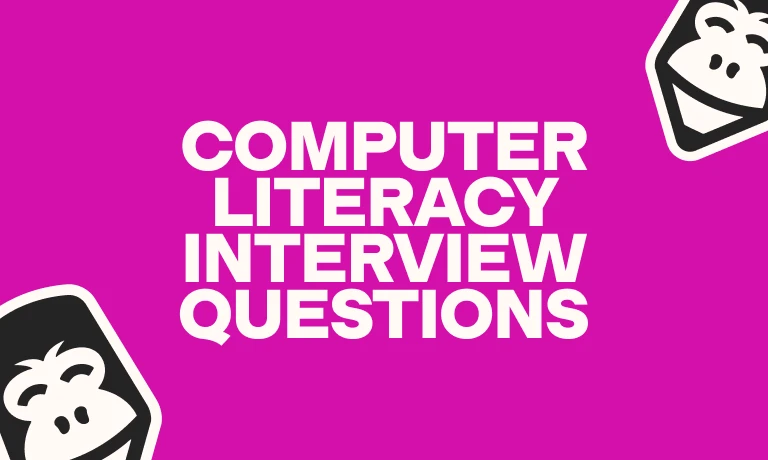As data usage increases rapidly in today’s world, companies that can harness the power of big data will be more relevant than those that don’t. This makes data analysts highly sought after in almost every industry.
Data analysts can help businesses understand market trends, make informed investment choices, predict customer behavior, manage risks, and maximize profits. However, finding an expert data analyst who suits your project’s or company’s needs may be challenging.
In this article, we’ll discuss what data analysts do and how to recruit top candidates for your company. We’ll also explore TestGorilla’s Exploratory Data Analysis test to reinforce your hiring process.
What does a data analyst do?
Data analysts have skills in IT, statistics, and quantitative analysis that enable them to identify and solve problems. Top analysts are pros in following sequences and patterns in data to discover trends and make informed decisions.
Below are other common tasks a data analyst undertakes at work:
Working in teams to decide on company goals
Collecting and collating data from different sources
Mining and cleaning data
Analyzing and interpreting data with statistical methods
Uncovering trends and sequences
Representing data with visual tools, like charts and graphs
Submitting their findings to the company’s management and relevant stakeholders
Storing data adequately
Creating data dashboards
Creating KPIs for the project or the entire organization
Designing and maintaining several databases
Using business intelligence software
Using machine-learning tech for advanced tech projects
What skills do data analysts require?
Data analysts use several technical tools to carry out their responsibilities. You might need to hire an R developer, an SQL expert, or a Python whizz. But they also require soft skills to handle various aspects of their duties and complete their projects.
Depending on your requirements for the role, below are some of the technical and non-technical skills you should be attentive to in your candidates.
Technical skills
Technical skills refer to the specialized knowledge and expertise needed to use real-time tools or programs to conduct tasks. Almost every industry requires some technical abilities to operate effectively.
Here are 10 technical skills for data-analyst roles:
SQL: Structured Query Language is a computing tool for managing big data and processing information faster than other spreadsheet software. It’s a vital tool required in the skill set of every expert data analyst when sorting and solving problems.
Spreadsheet: Besides being an expert in SQL for spreadsheet purposes, data analysts should also have a good understanding of more common spreadsheet tools. Spreadsheet tools like Google Sheets or Microsoft Excel can prove useful where companies prefer more familiar programs.
Statistical programming languages: Data analysts require knowledge of statistical programming languages like Python or R for analyzing big data. Data analysts must be familiar with several analytics tools and languages so they can adapt to employer preferences.
Data visualization: Once data analysts finish sorting, analyzing, and compiling data, they need to use their visualization skills to create simple and professional reports. Data visualization involves using graphs, charts, and other visual tools to prepare useful and accessible content.
Machine learning: If your company uses high-tech machines, you need a data analyst with a basic understanding of machine learning. As AI tech is growing rapidly, data analysts should stay up to date on AI trends.
Data preparation: Data preparation involves transforming large raw data sets into organized and comprehensible reports. Data analysts require this skill to process all relevant data to include before creating visualizations.
Writing: Data analysts mostly deal with numbers, but they also draft written reports on their daily tasks. Excellent writing skills can help them express their observations from a data analysis clearly and concisely.
Research: Data analysts also conduct research at different stages of a project. It helps them discover solutions to complex problems and evaluate newer processes.
Data warehousing: Data warehousing involves creating digital storage systems for organizational data. This skill is essential for monitoring your company’s data, storing it, and maintaining standard access.
Project management: Project management involves handling and monitoring every aspect of a project from start to finish. Data analysts require project management skills to manage data-based teams and IT departments to accomplish tasks.
Non-technical or soft skills
Soft skills are personality traits that enable individuals to engage in interpersonal and harmonious relationships with others. In workspaces, soft skills complement technical skills, helping employees perform their activities independently or in a team.
Below are five soft skills that every data analyst should have:
Critical thinking: Critical thinking in data analysis involves understanding the data collection and interpretation process for a specific function. This can include, for example, knowing the exact data to gather, sort, and process into useful information, which is critical to data analysis.
Communication: Data analysis involves communicating with several stakeholders, colleagues, and other professionals throughout a project’s lifecycle. Data analysts require excellent verbal and written communication skills to function effectively.
Problem solving: Data analysts typically face complex problems when undertaking their tasks. They require exceptional problem-solving skills to identify and create viable solutions to challenges that arise.
Attention to detail: Data analysis involves carefully reading and examining intricate coding and technical structure. As such, data analysts require strong, attentive skills to complete projects effectively.
Team spirit: A data-analysis role involves collaborating with internal and external stakeholders to accomplish tasks. Data analysts must be able to work with colleagues and show respect for everyone’s input and opinion.
The best insights on HR and recruitment, delivered to your inbox.
Biweekly updates. No spam. Unsubscribe any time.
How to hire data analysts
Below are five steps you can use to hire data analysts:
1. Build a good candidate profile
Finding top data analysts requires an understanding of the role. You can collaborate with the rest of the hiring team or a recruiter to discuss the ideal profile for the role. Take notes and use the results of this discussion to draft your candidate profile and requirements.
2. Write a skill-based job description
Once you determine the requirements for the position, you must also understand the relevant skills candidates need to succeed. You’ll want data analysts proficient in relevant tools like SQL, Python, and spreadsheet packages.
You can then prepare an extensive data analyst job description containing the role’s skills and requirements. The job description should also contain the job title, company overview, and remuneration.
For details on what this remuneration should be, you’ll want to explore our guide on what to pay a data analyst.
3. Use a prescreening test
Pre-employment tests can help you identify and determine candidates’ abilities in specific areas. For instance, TestGorilla’s EDA test focuses on feature engineering, data visualization, and statistical analyses to assess data analysts with good EDA skills.
The pre-employment test presents sample datasets in different sectors and asks applicants to solve problems and answer questions relatable to exploratory data analysis. It’s an intermediate assessment for candidates with two or three years in EDA.
4. Interview exceptional candidates
After the pre-employment test, you’ll discover candidates who can effectively conduct several data-analysis operations. You can now use this result to shortlist candidates for the interview stage. Make sure to do some research into appropriate interview questions to guide the process.
5. Select the best candidate
After assessing soft skills and other traits in the interview stage, you can streamline your choices to a few candidates. You can now make special offers to exceptional candidates, containing bonuses and incentives to attract and retain them.
Recruiting candidates for data-driven roles
Hiring candidates for technical roles requires effective recruitment methods to assess candidates’ expertise and skills adequately. Reviewing resumes to hire candidates, especially for tech roles like data operations, can be unreliable.
Pre-employment tests are the new and most effective hiring models to assess candidates’ skill sets comprehensively. For instance, you can be sure candidates who perform well in TestGorilla’s EDA test have strong knowledge and skills in the area.
This hiring approach will help you identify the strongest candidates for data-related roles and similar fields, ensuring they have the skills to improve your company’s productivity.
Create an account with TestGorilla today to hire your next data guru.
Related posts
You've scrolled this far
Why not try TestGorilla for free, and see what happens when you put skills first.


